Child literacy: The initiative helping young families read when they cannot afford to buy books
For some, books line floor to ceiling bookcases or are piled high in children's rooms. But for others, it's a luxury item that is the difference between feeding a family for a day, or not
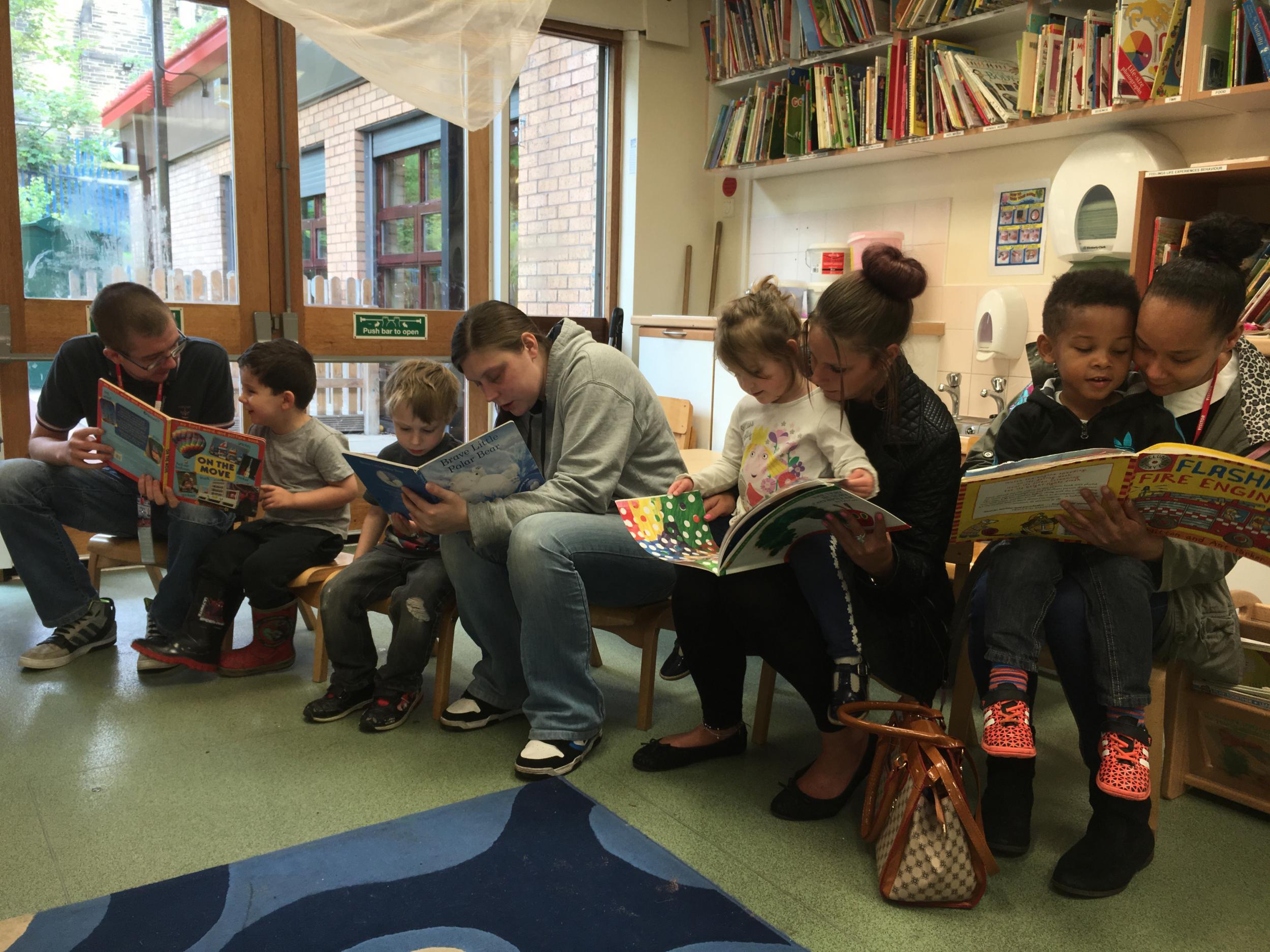
When you're poor, you prioritise. And for many, books are going to be pretty low down the list of the things a family needs to get itself through the week.
Perhaps that sounds shocking, if you live in the sort of household where books line the rooms, where children’s bedrooms are piled high with brightly-coloured picture books. It shouldn’t. Families on limited budgets, balanced to the penny, don’t factor in money for new books. They can’t.
Enter the Canterbury Imagine project, which is beginning its fifth year providing books for children on some of the most deprived housing estates in Bradford, West Yorkshire.
I went to see some of the families who have benefited from the campaign, at the Canterbury Nursery and Children’s Centre. There I met Jane Wootton and other parents, for who the project is something of a lifeline.
“This is a deprived area,” says resident Jane Wootton. “Books might not be top of the list for most people here. Some of these books are £5, £10. That’s a day’s food for some families. That’s why this scheme is so brilliant.”
How brilliant? Well, in the past year the Canterbury Imagine project has delivered almost 15,000 books to children aged from birth to five. And the families who receive them don’t have to pay a single penny.
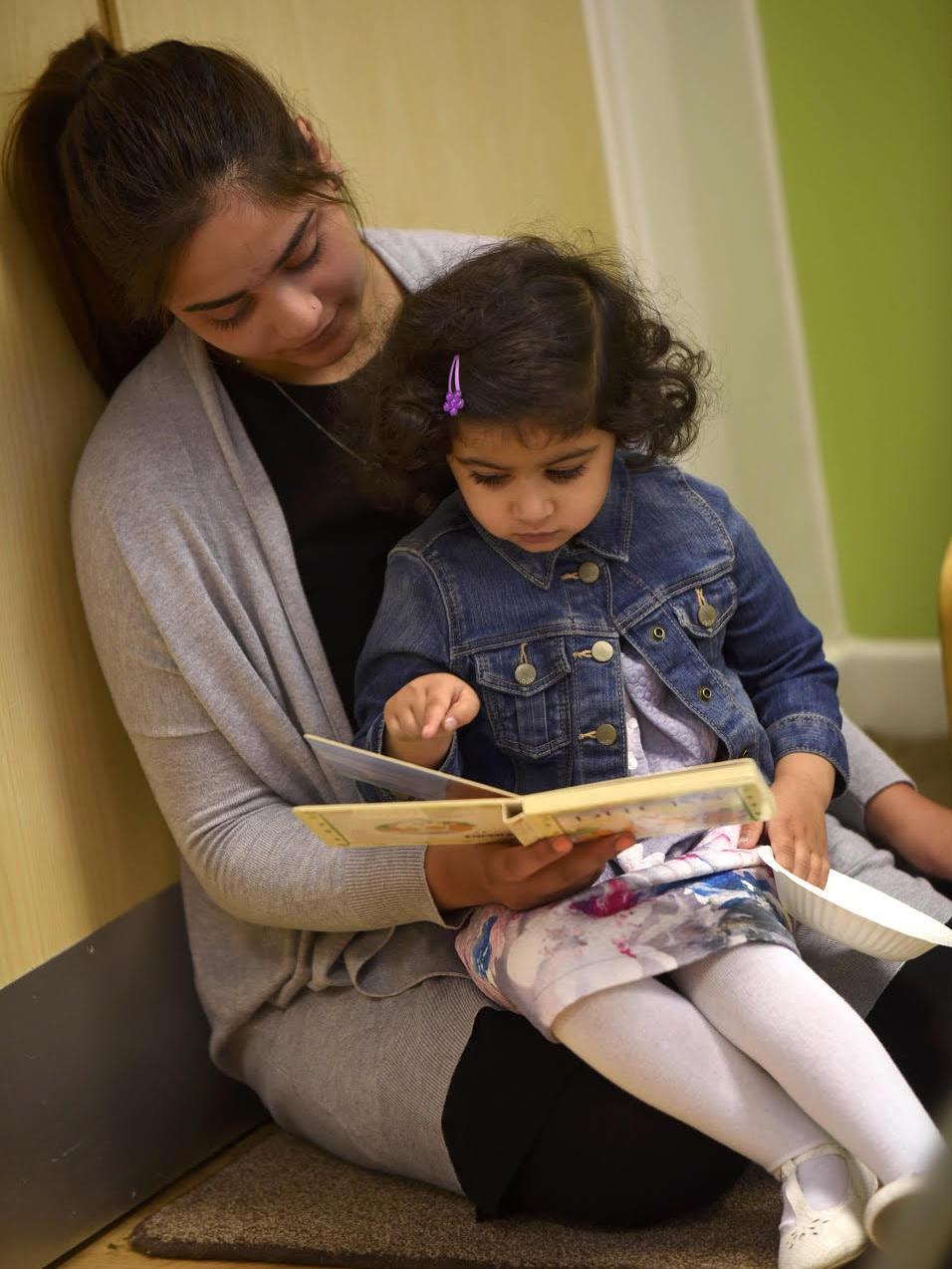
The Imagine project works in two main neighbourhoods in Bradford, focused on children’s centres at the heart of each community. The Ofsted reports on each of those centres paint a picture of the diverse demographics there. Of Canterbury, it writes: “The majority of the children are of Pakistani heritage. There is a significant proportion of children of White British background and increasing numbers of children from Eastern European and African backgrounds. Just over half the children who attend the nursery speak English as an additional language.”
In the Midland Road area, Ofsted has to say: “Most families in the area are of South Asian origin, although an increasing number of children and families from Eastern Europe also live in the area… The majority of children (86 per cent) live within areas identified as highly deprived.”
Sadaf Raqeeb is one of the mothers who enrolled her children in the scheme. Once children are registered, they get a new book every single month until their fifth birthday, building up a library of up to 60 books.
Sadaf signed up her son Huzaifa in September 2012, just a couple of months after the project launched in the area. She heard about it when she took her new child to a baby massage scheme, and immediately the age-appropriate books — the carefully-curated selection grows with the child – started arriving.
“We never get bored,” says Sadaf, a university graduate from Pakistan who came to the UK in 2009. “Every month they come, and every month it’s a surprise through the post. When Huzaifa is at nursery and the book arrives, I put it where he will see it when he comes home.”
The anticipation is also almost unbearable for five-year-old Jaydon, who lives with his dad James Lawlor on the Canterbury. “He gets really excited when the postman comes. And when there’s an envelope addressed to him he goes mad.”
James admits he never read as a child himself. “I wish I had, as I can see how important it is. I can see how he connects with characters in the stories, how he relate things to his own situations. I want things to be different for Jaydon, I want him to have as many chances as he can.”
Of course, spending £10 on a book isn’t the only way children can read. There are libraries too. Except for the fact that Bradford Council is in the process of transferring all its libraries to community groups to run them on a voluntary basis. Those that don’t get enough interest will be closed down for good.
Kay Raistrick is another mum who found out about the scheme when she took her son Lucian for a baby massage session. She says: “There is a library near here, but usually the shutters are down and you never know whether it’s open.”
For parents like her, Canterbury Imagine has allowed her to assemble a library of her own. Kay explains that, “I’ve got another son now, Cory, and we’ve got a shelf-and-a-half of children’s books. They go to the shelf and look at their books, and they bring them to me to read with me.”
Encouraging that parent-child interaction through reading is a story you hear time and again with the Canterbury Imagine parents. Sadaf adds: “When the book arrived, it encouraged me to read more.”
The district has very poor literacy levels – and it isn’t something that improves with age. According to the National Literacy Trust, almost half of Bradford’s adults – 47.2 per cent – have literacy levels that “make everyday life difficult”.
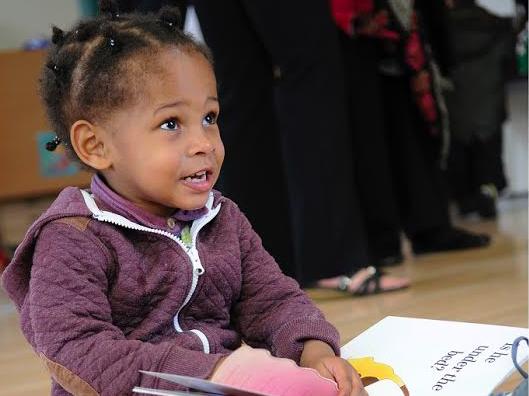
Improving literacy – and therefore children’s chances in life – was the primary aim when the project was set up in 2012. The driving force came from one woman, journalist-turned-lecturer Jan Winter, who was inspired to action after watching a TV documentary on children living in poverty in the UK, which partly focused on one child living on Bradford’s Canterbury estate.
Winter recalls: “It really struck home. This was practically round the corner from me. I couldn’t stop thinking about it. But I wasn’t sure what I could do.”
What she calls her “lightbulb” moment came when she heard a radio interview with the country singer Dolly Parton, who had set up a charitable foundation, the Imagine Library, to do exactly what Winter suddenly realised she could do in the UK: provide books for those who could ill afford them.
Winter quickly set up a charitable organisation and affiliated it to the Imagine Library, and while it is the bigger organisation which provides the books, it’s Winter and her team who have to raise the funds to obtain them. Each book, including postage, costs £2, and all the money is raised through tireless fundraising and begging for corporate sponsorship or donations. But it’s all worth it for Winter.
“It only costs £125 for a child to receive 60 books over their first five years of life, a crucial time for language and brain development. It is super cost-effective,” she says. “The lovely thing now is that the scheme is really a part of the community after five years, so the nursery school has copies of the books which children recognise when they go in, because they have them at home.
“Any children's centre staff who have contact with the families can talk about the books, see how they are being used, and encourage sharing of books. These small things have an impact on talking skills and early literacy, and help to bridge the gap between home and school or nursery.”
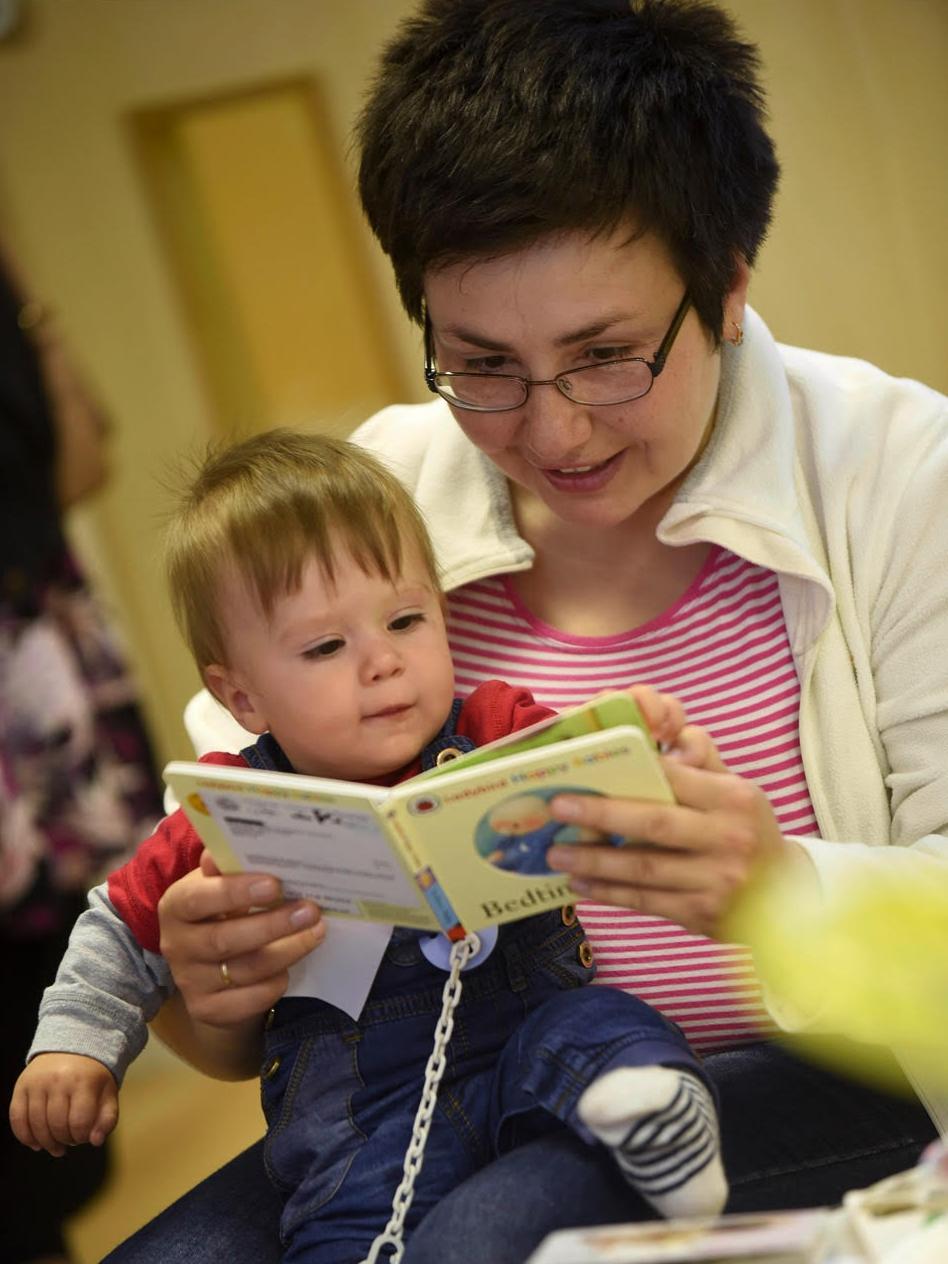
As well as providing books for children in the two nominated areas, the scheme expanded in 2013 to cater to children in the care of the local authority, with books posted to their foster homes or wherever they were being cared for. Due to confidentiality about details of children in care, the day-to-day administration was handled by Bradford Council. However, last year the scheme was temporarily put on hold because of administration problems at City Hall; Canterbury Imagine hopes to restart it this year.
As a direct result of the work done by the Canterbury project, an Imagination Library scheme was included in a successful £50m lottery bid from the community support organisation BetterStart Bradford, to work with families with young children in three of the district’s most deprived wards, enrolling children at birth to receive free books.
”I would love to see the scheme expand across other parts of the Bradford district,” says Winter, “and we are already thinking about how that might be done. That will need lots of agencies on board, and there are early discussions with the Dolly Parton Imagination Library's UK directors about how we could get businesses and others to help.”
As the scheme expands, it is bringing books – considered a luxury that often cannot even be considered by the poorest families in Bradford – directly into homes every single month. The educational aspects are undoubtable; the Knowland and Formby survey into childhood literacy in 2016 noted that the number of books in the home was one of three features linked with children’s vocabulary development. Those with more books in the home had above average scores on a vocabulary test.
The report also talked about the importance of parents being confident about sharing books with their children, explaining: “The role of parental attitudes towards sharing stories with their child is likely to be important when it comes to supporting them through the emergent literacy journey.”
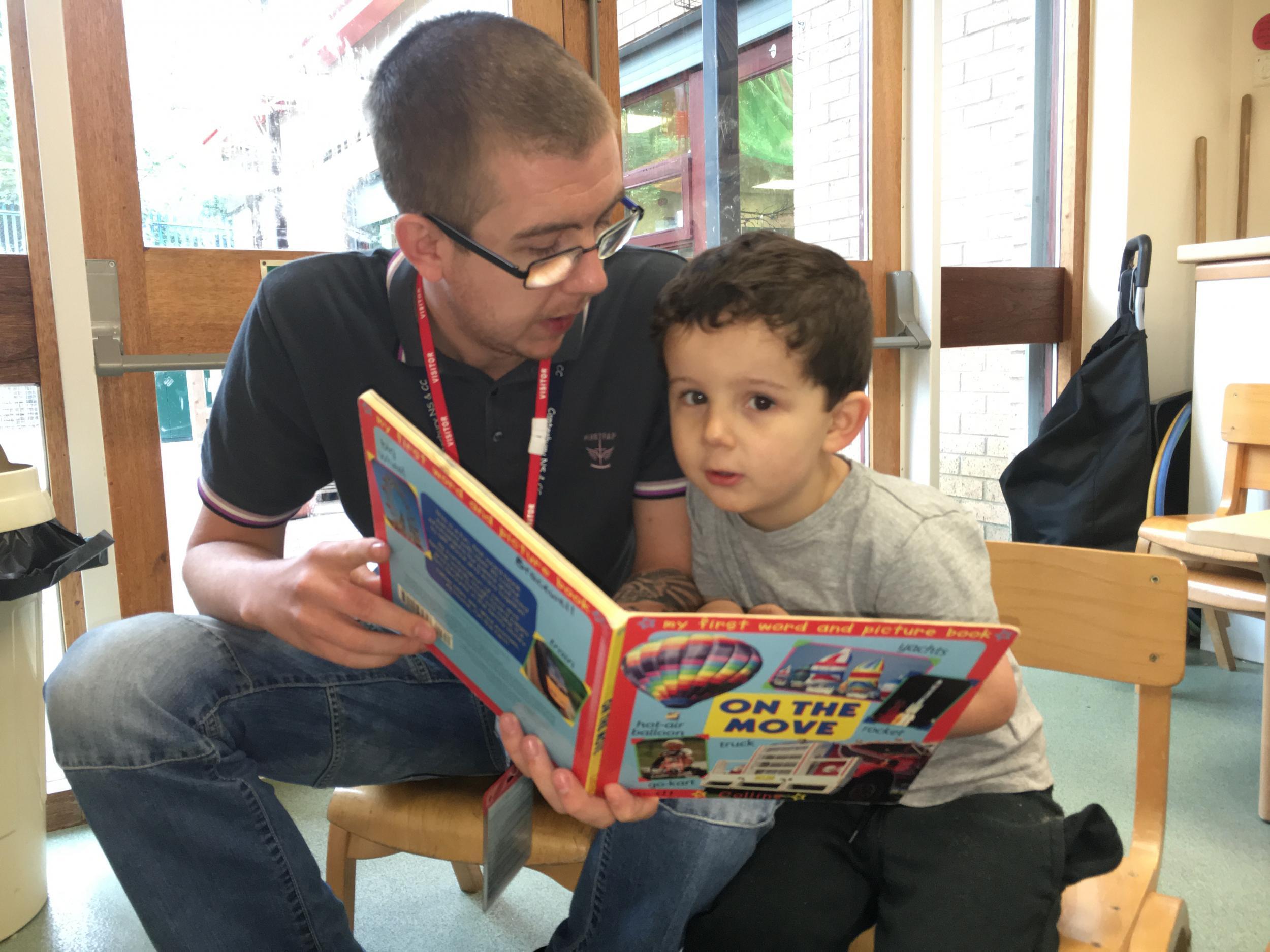
Sharon Hogan, headteacher of the Midland Road nursery which is the hub of one of Winter’s two-pronged Imagine scheme, is the one who sees the theory put into practice on the ground. She says: “Supporting early literacy has long been a key feature of the best early-years practice, and a part of this is working in partnership with parents.
“The significance of children receiving a high quality story book at home each month cannot be underestimated. It is probably the single most cost-effective strategy to support a sustainable literate home learning environment I have come across.”
And there’s the nub of it. For all the theory, there’s one thing that makes it all worthwhile for Winter: when she’s told how a small child’s face lights up every month when a package addressed to them drops through the letterbox, and how they tear it open and take another step – not only towards better literacy levels but also the potential for a lifelong love of reading.
Join our commenting forum
Join thought-provoking conversations, follow other Independent readers and see their replies
Comments
Bookmark popover
Removed from bookmarks